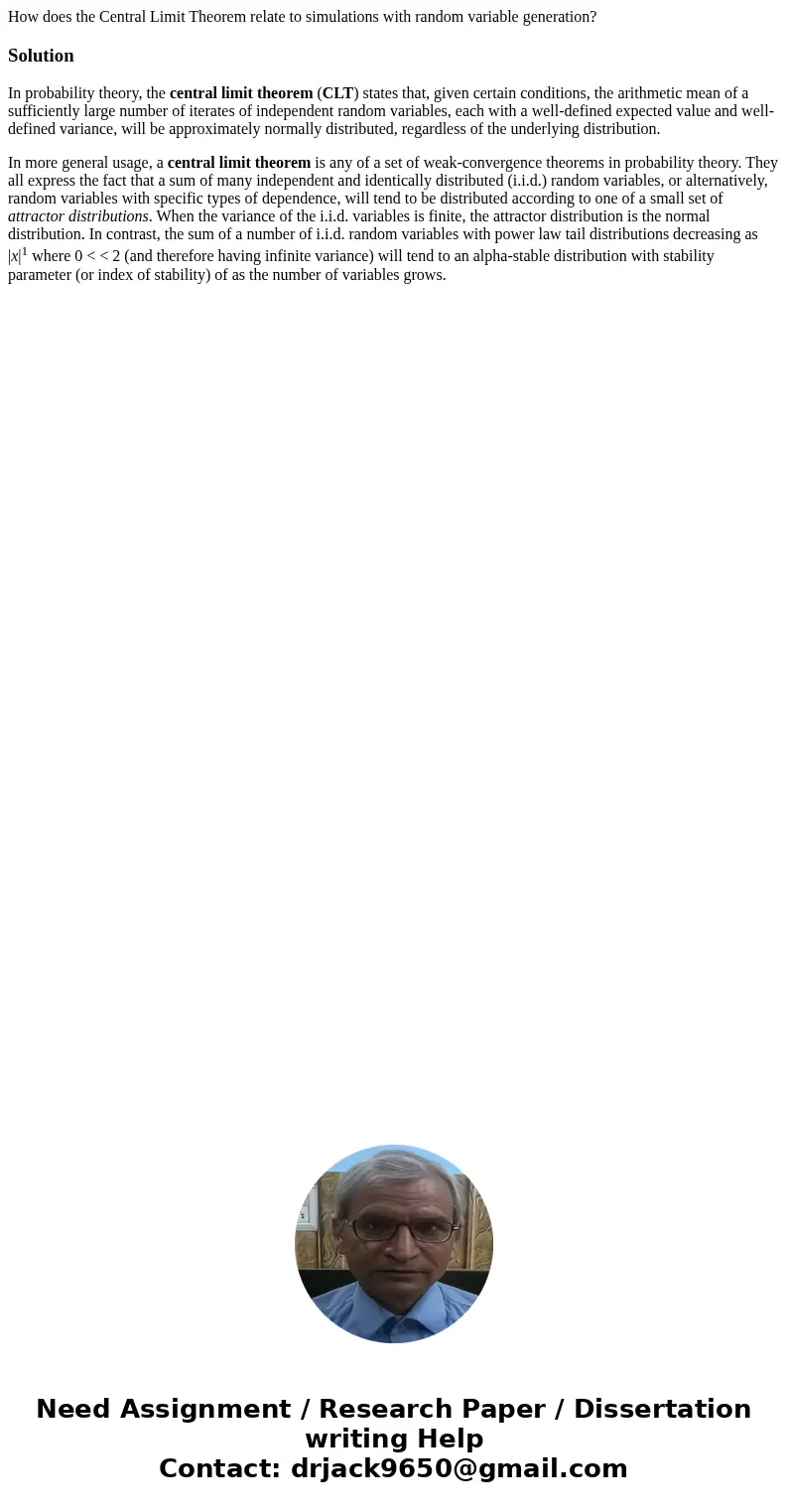How does the Central Limit Theorem relate to simulations wit
How does the Central Limit Theorem relate to simulations with random variable generation?
Solution
In probability theory, the central limit theorem (CLT) states that, given certain conditions, the arithmetic mean of a sufficiently large number of iterates of independent random variables, each with a well-defined expected value and well-defined variance, will be approximately normally distributed, regardless of the underlying distribution.
In more general usage, a central limit theorem is any of a set of weak-convergence theorems in probability theory. They all express the fact that a sum of many independent and identically distributed (i.i.d.) random variables, or alternatively, random variables with specific types of dependence, will tend to be distributed according to one of a small set of attractor distributions. When the variance of the i.i.d. variables is finite, the attractor distribution is the normal distribution. In contrast, the sum of a number of i.i.d. random variables with power law tail distributions decreasing as |x|1 where 0 < < 2 (and therefore having infinite variance) will tend to an alpha-stable distribution with stability parameter (or index of stability) of as the number of variables grows.

 Homework Sourse
Homework Sourse